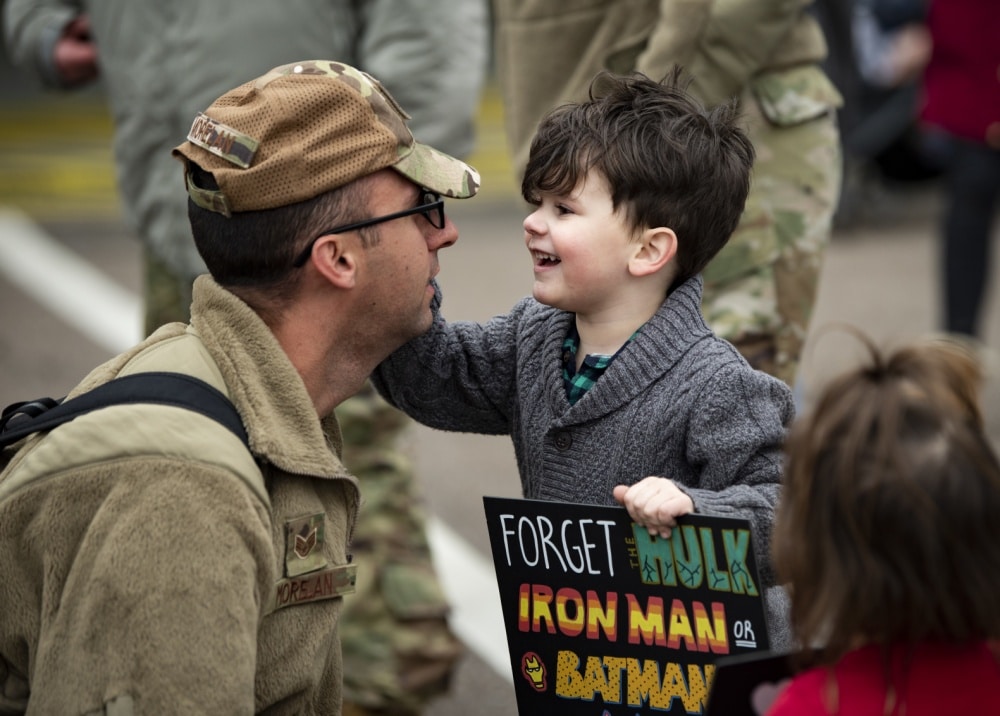Military families are as tough as nails.
When you face uncertainty on a regular basis — including deployments — resilience is a skill that tends to build rather fast.
Part of that military “toughness” as a family is learning to stay connected no matter how far the government sends your service member.
It’s a must to connect with your deployed service member, but it’s also essential to keep everyone in your household feeling connected for a solid built-in support group.
Dealing with the physical and emotional distance can feel daunting. We’re here to tell you that while it’s tough, you’ll learn to survive and thrive. In fact, deployments can make military families feel even closer once it’s all said and done.
Still not sure how to keep that close-knit feeling going?
Here’s a look at what you can do before, during, and after deployments to keep your military family united and connected.
Before Deployment
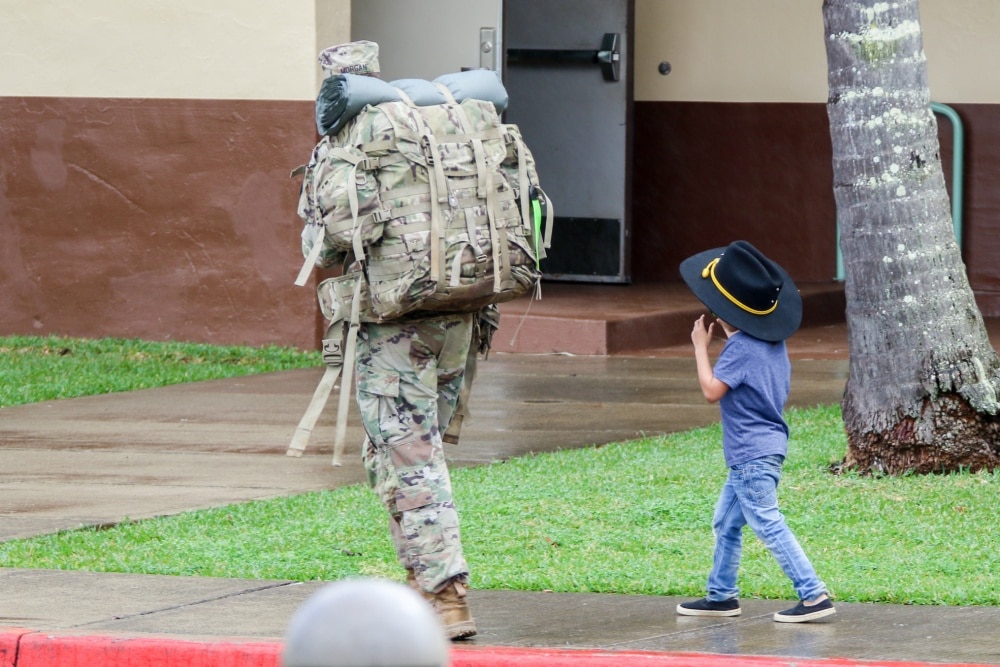
Once deployment orders arrive, the dread and anxiety can weigh over your head until shipment day happens. One of the best ways to tackle deployment worries is to face those head-on as soon as orders arrive.
Start discussions early about how you’ll handle the upcoming separation. Let your kids share their feelings, too. It’s important to acknowledge deployment is going to happen regardless. Teaching your children to deal with hard feelings is a healthy coping skill they’ll use beyond military life.
As a family, here’s how to handle the pre-deployment jitters:
- Discuss as much as you can before leaving – As soon as a service member gets details of where and for how long they’ll be gone, start planning. Share what you can with children to help them understand when mom or dad will be back.
- Plan communications and backups if necessary – Prepare yourself and children for disappointment if plans don’t work or technology fails. It happens often when there are thousands of miles between you and technology isn’t up-to-date.
- Encourage family discussions – Now is the time to let out all the anxiety and other worries. Together, come up with a plan for managing those concerns.
- Make sure children understand rules stay the same – Behavior expectations don’t change when one parent is gone. By sharing this — and standing firm — it presents you as a united front to your kids.
- Spend special family time together – Schedule in quality time together to enjoy before the deployment. Everyone in the household should have one-on-one time with the service member who is leaving.
- The deployed parent can leave special items behind – Kids often have the hardest time handling deployments, especially young ones. Before deployment, the service member should leave behind a special gift that your child(ren) will adore — like a pre-recording of a favorite book being read, special photos, notes or letters for the family.
- Organize important paperwork – Have wills, power of attorney, and other legal needs complete and up to date. This will minimize the frustrations of things that “should have been done” and the partner blame game once deployment begins.
- Take care of big household responsibilities – Home and vehicle maintenance should be up-to-date. Discuss who the homefront parent will call when something happens to either. Doing this will empower the spouse left behind, too.
Check out our post for military spouses on Getting Through Your First Military Deployment as a Couple.
Keeping Your Military Family Connected During Deployment
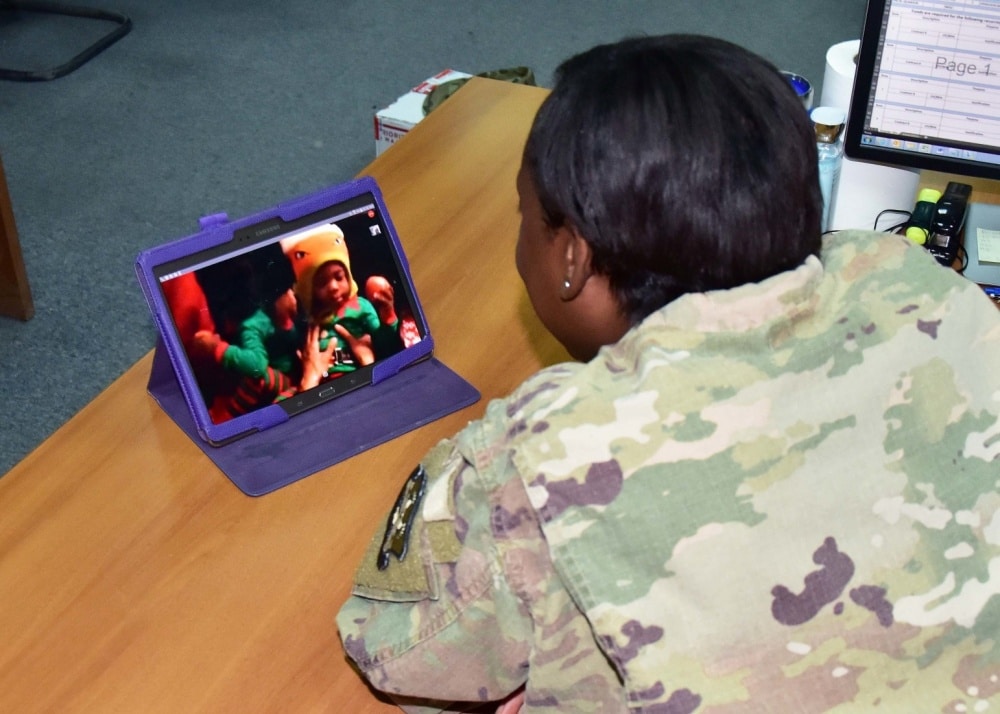
Staying busy and distracted is the name of the game during deployment. It’s the only way to have the days pass by quickly. Understanding the communication will often be sporadic, inefficient, and delayed can help keep expectations in check, too. Discussing this well in advance is helpful for little ones.
- Keep kids in the loop – Communicate with children about how long until mom or dad will be home. A countdown calendar is helpful for this and is a fun way to keep track of celebrating milestones — like a halfway point.
- Don’t set scheduled talk times – This can lead to a lot of disappointment for everyone. Plus, you may fear the worst if you don’t hear from your loved one when they said they’d call. Get ballpark estimates instead.
- Be patient with yourself and family – The stress of separation can be hard on everyone. Prepare for emotionally trying times and behavior changes in yourself and kids as you adjust to solo parenting.
- Keep schedules as normal as possible – Routines are soothing for kids of all ages. Build-in time to talk about deployment feelings. Excite them about the next time they’ll talk to their deployed parent.
- Encourage conversations about the deployed parent – Kids can write letters and make drawings to send them. The Sandboxx app also makes it easy to take extra photos to share during the deployment period.
- Give love reminders –Tell the kids how much they are loved and missed by the deployed parent.
- Share resources with your deployed spouse – While your spouse is away, share valuable resources that can help them. Like this post on How to Best Cope With Deployment Stress When You’re Far From Home.
- Create care packages together – Plan a time once a month to get together as a family to send off a care package. You can go on a special shopping trip to collect your service member’s favorite items together, too. Let kids decorate the box with stickers, quotes, and other artwork.
- Spend quality time together – Plan special activities to do together as a family. This will keep you feeling connected and allow your family to let loose and forget about the deployment for just a bit.
- Be consistent with discipline – It’s important to maintain the same discipline measures you did before the service member deployed. Make sure teachers or other caregivers know about the deployment, too.
- Don’t be afraid to ask for help – This goes for yourself or the kids. Military families often think they have to “tough it out” when in reality there are plenty of organizations on and off base that are there to support families like yours.
- Make self-care a priority – Make time for yourself to recharge. You can’t take care of your family if you aren’t at 100% yourself. Self-care is an important part of maintaining your sanity while you’re responsible for keeping your family connected during deployment. Plus, it shows your kids healthy ways to deal with stress.
Check out our list of 25 activities to do with your kids when your spouse is deployed!
After Deployment
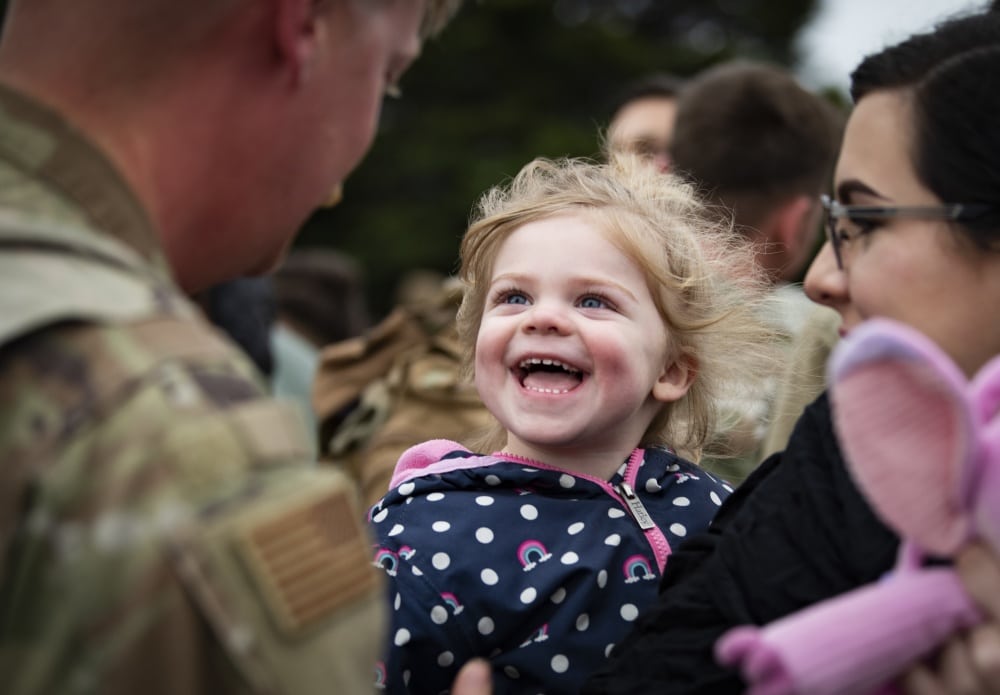
Reintegration is just as much of an adjustment for military families as the actual deployment. This period of time can range from feeling awkward to stressful as you work together to go back to your “normal life” post-deployment. Reconnecting as a family unit will take time and patience, but it’s also an exciting time as you get your service member back.
A few things to keep in mind as you settle into this new period:
- Your returning service member may need some space – Being away from home for a long time and essentially working 24/7 is a tough job. It’s a whirlwind feeling to come home, and your service member may feel overwhelmed and exhausted. Their lack of enthusiasm doesn’t mean they aren’t happy to be home or be with family, though.
- Slowly work back into social commitments – Consider holding off on welcome home parties to give the soldier and family time to readjust and reconnect.
- Mixed emotions at homecoming are normal – Spend quality time together as a family and encourage children to express their feelings. Understand that everyone in the family may have mixed emotions about the reunion.
- There will be an adjustment period – Your service member’s absence means you had to do normal household routines a bit differently as a one-person show. Be patient with each other and the kids while everyone is adjusting to how things are normally run.
- It can be difficult to share responsibilities again – Whether your spouse has been gone weeks, months, or years, talk about household responsibilities and find your “new” normal together.
- Watch for signs of stress – Communicate often about the changes in the household and any stressors kids and the returning parent may be feeling.
- Seek help if needed – Counseling services are available for married couples and individuals having a hard time adjusting to life back home. Additionally, if a service member is acting suicidal, you can contact the Military Crisis Line 24 hours a day (1-800-273-8255 and Press 1). This free, confidential service is available to all service members and family members, including reservists and even veterans.
- Be supportive – The best way to reconnect and reintegrate is to be supportive of each other and the children.
Special Note: It’s important to remember post-deployment adjustments don’t last forever and everything will get “back to normal” quicker when everyone works together to build a strong support system.
Military Families All Have Their Own Way of Doing Deployment
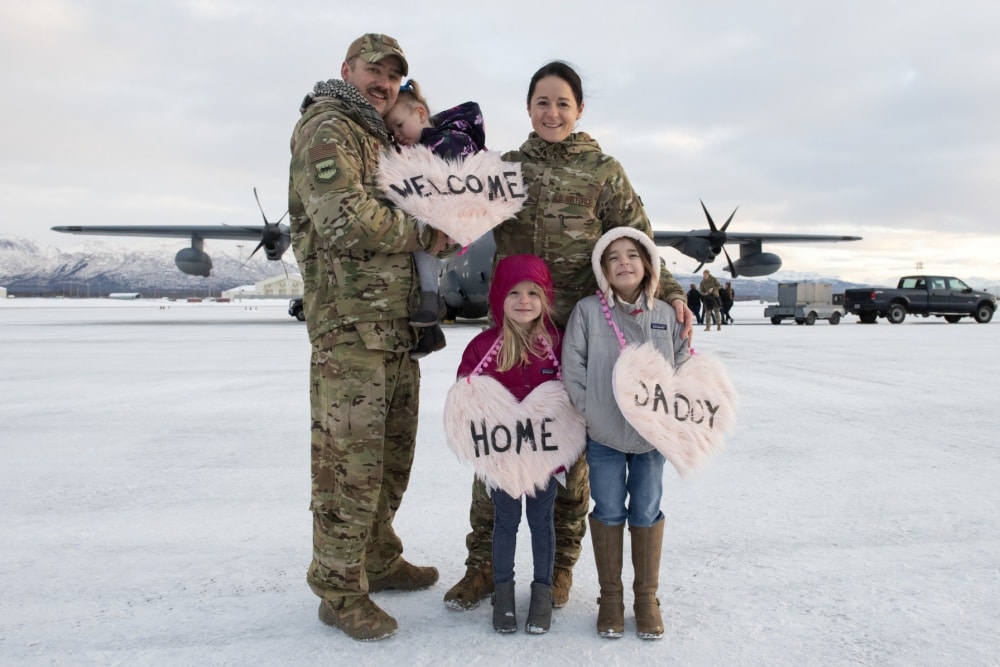
Every military family has its own way of handling deployment.
You just have to do what works for your family. While deployments will never become “easy” for your family, you will come to learn what to expect if you go through more than one. With time comes experience, and you’ll find better ways and technology pop up all the time to keep you connected.
Prior to your service member coming back, don’t forget to prepare yourself. Things will be different for a time, and that’s okay.
Consider attending reintegration briefings to help you better understand what to expect. These are usually hosted by experienced military spouses, counselors, chaplains, and other experts who have gone through reintegration. On your spouse’s end, they should be able to speak with a chaplain or attend welcome back briefings as well.
Additional support is always available for military families. Aside from your own family and friends, consider reaching out to your installation’s Military and Family Support Center. There, you’ll be able to connect with a Military Family and Life Counselor to help you get through this new adjustment period.
Want to connect with your deployed service member on a positive note? Here are 15 Inspirational Deployment Quotes to Send Your Service Member!
Feature image courtesy of U.S. Air Force photo by Airman 1st Class Madeline Herzog
